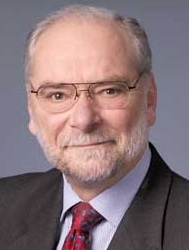 President Obama recently signaled his belief that government has a continuing role in making America a better place for every citizen. Just as other leaders have seen a brighter future and moved to make it happen, the president said he wants to bring “next generation broadband and high-speed wireless” to every school and library in America.
President Obama recently signaled his belief that government has a continuing role in making America a better place for every citizen. Just as other leaders have seen a brighter future and moved to make it happen, the president said he wants to bring “next generation broadband and high-speed wireless” to every school and library in America.
In announcing his new ConnectED initiative, the president encouraged the Federal Communications Commission to modernize the E-Rate program for the 21st century so that America’s teachers and students can explore the world as fully as possible and develop the skills for success.
Bringing advanced connectivity to every school means that every student, in poor neighborhoods as well rich, in urban communities as well as suburbs and farms, will benefit from digital tools that can transport them virtually to just about any place in the world. In this way, the president is aiming to expand young people’s universes, create access to advance class work, and enable them to touch distant cultures, history, art, music, and other resources.
By wiring schools to take advantage of technology, the president’s initiative opens new possibilities and helps inspire young people to dream and achieve.
Outfitting our schools for digital learning isn’t just about speed. As FCC Commissioner Jessica Rosenworcel and Congressional Representative Anna Eshoo recently wrote, it’s also about bandwidth – making sure that schools have enough capacity to support every student’s access to advanced Internet networks.
“By the end of the decade, every school should have access to 1 gigabit per 1,000 students. Libraries, too, will need access on part with these capacity goals,” they said.
Meeting those goals requires next century broadband networks, wired and wireless, so that all of our digital devices work together quickly and seamlessly when we need them. That too, can be part of a progressive agenda with policies and modernized regulations that encourage investment and innovation by America’s telecommunications and technology industries. It also means boosting spectrum availability to support the continuing surge in wireless, which combines the flexibility of mobility with the power of broadband.
The benefits of advanced networks go well beyond the classroom. Hospitals, doctors’ offices, and medical clinics can deliver more effective care, often at lower cost, with tools that allow digital record keeping, information pooling, and patients’ tracking progress remotely.
Telemedicine services that provide diagnostic services, transport medical images to distant locations in real time, and enable consultations among experts in different locations will become more effective as networks improve. If we care about better health care, we must also care about the networks that deliver the information.
Advancing policies that increase access to modern digital tools, high-speed broadband networks, and mobile technologies would create new opportunities across the economic spectrum. At bottom, they can contribute to a more equal society in which every American can legitimately dream big dreams. Initiatives such as ConnectED illustrate how government can advance progressive goals even at a time of political gridlock.
Hopefully, President Obama, Congress and the FCC can build on this initiative with additional policies to boost America’s digital networks and open the door to the new opportunities that can help every American.
This article originally appeared on Fox News Latino.
Ron Blackburn-Moreno is the Executive Director of ASPIRA, a national Hispanic organization dedicated to developing the educational and leadership capacity of Hispanic youth.

Recent Comments